
In 2012 the Kerala State Forestry Department decided to relocate their outdated Thrissur Zoo to a 50 hectares site in the town of Puthur. This was an aesthetically spectacular and physically demanding landscape featuring a large central hill and abundant exposed granite-gneiss bedrock outcrops. The purposes of this project were to display and support the conservation of the rich and diverse ecosystems of the Western Ghats and provide optimal well-being for indigenous species and the old zoo’s animals while establishing a new standard for zoo visitors’ experience. Integrated within these goals would be ecological restoration and re-wilding of this highly disturbed site, improving local community livelihoods and providing facilities for breeding regionally endangered species.
Design began with three extended site walks led by the design team joined by Mr. Yalakki and representatives of the Forestry Department, local university ecologist Dr. P.O. Nameer, and a delegation of local community leaders. Learning from this complex site together was an essential aspect of the design process, allowing everyone to witness and share in the vision-making.
Bu hikaye Journal of Landscape Architecture dergisinin LA 78 sayısından alınmıştır.
Start your 7-day Magzter GOLD free trial to access thousands of curated premium stories, and 9,000+ magazines and newspapers.
Already a subscriber ? Giriş Yap
Bu hikaye Journal of Landscape Architecture dergisinin LA 78 sayısından alınmıştır.
Start your 7-day Magzter GOLD free trial to access thousands of curated premium stories, and 9,000+ magazines and newspapers.
Already a subscriber? Giriş Yap
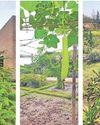
PLANTING IN URBAN AREAS NOTES
In urban landscapes, while balancing aesthetic design with their ecological functions, the understanding of plants in respect of their ecozones*, microhabitats, and species plays a crucial role. Native plants offer ecological benefits but face challenges in urban environments. There are some pragmatic considerations in this regard.

PLANTS IN ECOLOGY AND DESIGN
'100 Plants' offers insight into Delhi's ecology, guiding landscape architects and gardeners to cultivate sustainable, bio-diverse urban landscapes. It is an essential resource for all plant enthusiasts.
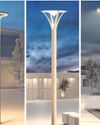
LANDSCAPE LUMINAIRES CAPTURING THE ESSENCE OF LANDSCAPES
Landscape luminaires blend with architecture, enhancing safety, security, accentuation, and aesthetics while minimizing light pollution and promoting sustainability for a captivating outdoor experience.
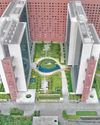
SURAT DIAMOND BOURSE
The landscape design of the corporate-commercial centre, inspired by the five elements of nature and Vastu principles, attempts to create a unique sense of place. It combines design with public art, encouraging a harmonious environment for business and leisure.
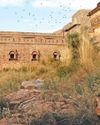
SIX SENSES FORT BARWARA RAJASTHAN
In the transformation of a historic 14th century fort-an erstwhile home of a Rajasthan royal family-into a luxury resort, native plants and indigenous materials play a pivotal role, redefining luxury with ecological sensitivity.
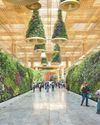
'A TERMINAL IN A GARDEN' PUTTING NATURE AND BIODIVERSITY AT THE HEART OF THE PASSENGER EXPERIENCE
The design of Terminal 2 (T2) at Kempegowda International Airport in Bengaluru is an attempt to provide a sensory and biophilic experience for passengers.
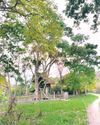
IDEAS OF 'SCENERY' AND 'LANDSCAPE' LINKING GEOGRAPHY WITH LANDSCAPE ARCHITECTURE
The term ‘landscape’ while encompassing natural and human elements, is understood differently among disciplines. Geographers, another set of experts working closely with nature, provide crucial ecological data, aiding landscape architects in creating sustainable designs.
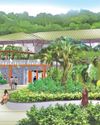
THRISSUR ZOOLOGICAL PARK KERALA
The relocated Zoo aims to showcase rich Western Ghats ecosystems, support nature conservation, and provide immersive visitor experience. The development integrates ecological restoration, architecture and landscape while improving livelihood opportunities of the local community.

ECOLOGY AND LOCAL CULTURE
With a working panel of scientists and experts from different fields of plant and animal ecology, the Nature Conservation Foundation is a Mysore-based NGO, engaged in exploring, understanding, and conserving the natural world through research and responsible engagement with society.
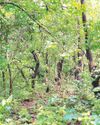
BEAUTY FOLLOWS COMPLEXITY
Designers must heed Sullivan's \"form follows function\" to avoid beauty over function. Following nature in landscape design enhances ecological productivity while promoting sustainability with principles of use of native species, biodiversity, and conservation of natural resources.